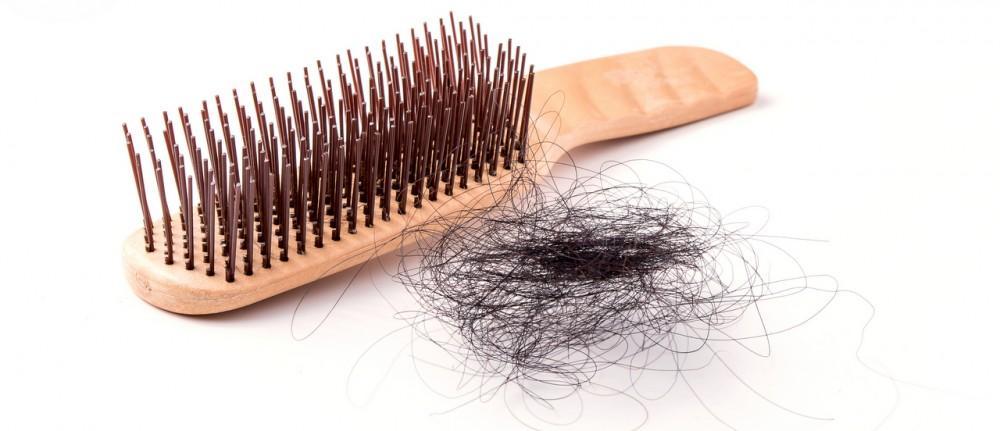
Telogen Effluvium- My Hair Is Falling Out! What Should I Do?

Telogen effluvium can be both caused by stress and also be a cause of stress. The important thing to remember is that whatever is happening to your hair lags behind your internal condition by about 3 months. In other words, your hair loss probably started a little while after the increase in stress to your system and will likely continue for a short while after you reduce your stressors.
Why does this happen? Hair follicles go through a growth cycle, consisting of four phases: anagen (active growth), catagen (transition), telogen (resting), and exogen (shedding). When growing hairs are exposed to changes in their environment due to stress in the body, they switch over to resting and then to shedding. This process results in a lag between onset of stress and the physical manifestation of large numbers of hair being shed. We normally lose up to 100 hairs daily, which is totally normal, because not all hairs are in the same phase of the cycle at the same time. When a large number of growing hairs switch to resting due to stress, we take notice of the shedding and become alarmed.
Rather than being too concerned about how long the process will last, my recommendation to you would be to try to relax and relieve yourself of the stressors in your life. If you have been ill, just had a baby, or recently underwent surgery, allow yourself the time to recover and regain your strength and energy. If you haven't been ill, even efforts to be healthier can be stressful to the body, if done too quickly or too intensively. Once your body regains its equilibrium, your hair should start to grow back shortly thereafter, generally about 3-6 months.
What can you do to help this catch-up process along? Topical or oral minoxidil should help, as can low-level laser light therapy. You should also see if your illness, new diet and exercise regimen, or pregnancy have depleted your body of vital nutrients and iron stores.
At The Rawal Institute for Hair Restoration and Aesthetic Medicine, we take your concerns very seriously and help you get to the root of your hair loss. A consultation with Dr. Rawal includes a comprehensive evaluation of your medical, surgical and social history, measurement of your internal state with laboratory tests, and microscopic examination of your scalp and hair follicles, followed by a customized treatment plan to help you get your hair back. Hang in there, help is just a phone call away. Call (608) 721-6132 to schedule your consultation now.
You Might Also Enjoy...


Want to Avoid Premature Skin Aging? You Need a Prejuvenation Plan

Can I Get Botox and Fillers at the Same Time?

I Used to Have Thick Hair: How Can I Get It Back?

I Have Abnormal Skin Pigment: What Can Help?

